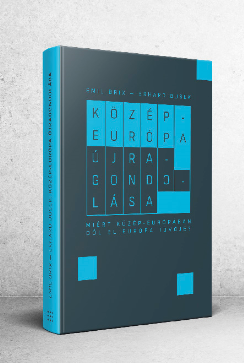Academic Book Launch 2/1 – Presenting the book by Emil Brix and Erhard Busek: Bába Iván, iASK deputy director
Date: 10th of December 2019. at 2.00 p.m.
Venue: Zwinger-Oldtower Kőszeg H-9730 Chernel st. 16.
There are two, often contradicting narratives on Central Europe these days. One: Central Europe is the biggest European success story of the last three decades, with the reintroduction of democracy and market economy, and the integration of the region into the European economic and security structures. Two: Central Europe has become a fragmented and isolated region, with no constructive ideas for the future of Europe, showing no solidarity in the migration crisis, and where political stability can only be sustained at the cost of a highly nationalist-populist policy.
The question of the day is: how and under what conditions did the new history of Central Europe begin after 1989-90? What chances and dangers does Central Europe offer for the future of the continent? Could Central Europe be the region to lead the way for the European Union in crisis?
In a recent book published today in Hungarian translation, two well-known Austrian intellectuals investigate these issues: former Vice-Chancellor Erhard Busek, head of the prestigious Danube and Central Europe Institute, and Emil Brix, Austrian ambassador to London and Moscow, now Director of the Vienna Diplomatic Academy. The two of them first jointly published a book on Central Europe 30 years ago. In their new volume, they revisit the situation in the region, presenting and analyzing the performance, opportunities, and dilemmas of Central Europe.
“The attractiveness of the Central European discourse has ended with the accession of small Central European states to the Euro-Atlantic processes and institutions. For a while it seemed that the integration of the region will help overcome centuries of lagging behind” says Professor Ferenc Miszlivetz, Director of iASK, the Institute of Advanced Studies in Kőszeg) “The optimism of the 1980s eroded in the first decades of the 21st century. Global cooperation and the utopia of a common European home have in recent years been replaced by a series of dystopias and emergency scenarios. It is, therefore, all the more remarkable that, without losing their earlier convictions and momentum, the authors argue that Central Europe has remained a region of hope, at a time when Europe is obviously in trouble: the European project is experiencing the deepest crisis in its history. So why will the future of Europe be decided here? Is a very exciting question, and we are proud to offer the book to Hungarian readers” Miszlivetz says in connection with the Hungarian premiere of the book.
The volume is available for purchase from the publisher, FTI-Institute for Advanced Studies.
